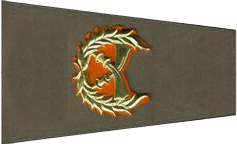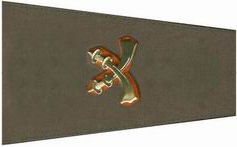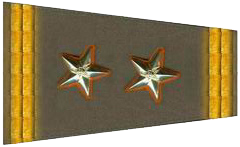The security agencies in Nepal have a clearly defined chain of command in terms of ranking. The Armed Police Force Ranking structure also follows a clearly defined line hierarchical chain of command structure just like the Nepal Police Ranking. The following blog will try to cover APF Nepal and its current ranking structure.
Table of Contents: Armed Police Force Ranking
Introduction
The Armed Police Force Nepal (APF) plays a vital role in Nepal’s security landscape, serving as a paramilitary force with a unique dual role of both military and law enforcement responsibilities. It means that the Armed Police Force Nepal plays the role of the Army meaning that it is responsible for border and landscape protection as well as police meaning that it is also responsible for internal peacekeeping and law enforcement.
It was established in response to the Maoist insurgency in the late 1990s, the APF has grown to become a critical component of Nepal’s security apparatus. In this comprehensive blog post, we will delve deeper into the history, structure, weaponry, roles, and international contributions of the Armed Police Force Nepal.
Service in the APF is voluntary, with the minimum age for enlistment set at 18 years. This voluntary service reflects the commitment of individuals to safeguarding Nepal’s peace and security.
Historical Background
The APF’s origins are rooted in the turbulent period following the initiation of the “People’s War” by the Maoist Communist Party of Nepal in February 1996. The escalation of armed resistance and criminal activities during the conflict prompted the need for an independent police force. Consequently, the Armed Police Force Nepal was formally founded on October 24, 2001, with Krishna Mohan Shrestha of the Nepal Police serving as its inaugural chief.
Armed Police Force Ranking
The command and control structure of the Armed Police Force Ranking follows the protocol established by the 1990 Constitution of Nepal and its interim constitution. Currently in the Armed Police Force Ranking, Raju Aryal is Inspector General (IG)
Currently, there are 15 ranks in the Armed Police Force Nepal. The following table contains the Armed Police Force ranking structure and their equivalent classes and respective insignia in hierarchical order i.e. from top rank to bottom rank.
| S.No | INSIGNIA | Armed Police Force Ranks | Status (Class) | At Par with Nepal Army |
|---|---|---|---|---|
| 1 |  | Inspector General – IG (सशस्त्र प्रहरी महानिरीक्षक) | Gazetted Special Class | Lieutenant General |
| 2 |  | Additional Inspector General – AIG (सशस्त्र प्रहरी अतिरिक्त महानिरीक्षक) | Gazetted Special Class | Major General |
| 3 |  | Deputy Inspector General – DIG (सशस्त्र प्रहरी नायब महानिरीक्षक) | Gazetted 1st Class | Brigadier General |
| 4 |  | Senior Superintendent – SSP (सशस्त्र प्रहरी वरिष्ठ उपरीक्षक) | Gazetted 1st Class | Colonel |
| 5 |  | Superintendent – SP (सशस्त्र प्रहरी उपरीक्षक) | Gazetted 2nd Class | Lieutenant Colonel |
| 6 |  | Deputy Superintendent – DSP (सशस्त्र प्रहरी नायब उपरीक्षक) | Gazetted 2nd Class | Major |
| 7 |  | Inspector – INS (सशस्त्र प्रहरी निरीक्षक) | Gazetted 3rd Class | Lieutenant |
| 8 |  | Senior Sub Inspector – SSI (सशस्त्र प्रहरी वरिष्ठ नायब निरीक्षक) | Non Gazetted 1st Class | Subedar Major/ Senior Warrant Officer |
| 9 |  | Sub Inspector – SI (सशस्त्र प्रहरी नायब निरीक्षक) | Non Gazetted 1st Class | Warrant Officer I |
| 10 |  | Assistant Sub Inspector – ASI (सशस्त्र प्रहरी सहायक निरीक्षक) | Non Gazetted 2nd Class | Warrant Officer II |
| 11 |  | Senior Head Constable – SHC (सशस्त्र प्रहरी वरिष्ठ हवल्दार) | Non Gazetted 3rd Class | Sergeant |
| 12 |  | Head Constable – HC (सशस्त्र प्रहरी हवल्दार) | Non Gazetted 3rd Class | Corporal |
| 13 |  | Assistant Head Constable – AHC (सशस्त्र प्रहरी सहायक हवल्दार) | Non Gazetted 3rd Class | Lance Corporal |
| 14 |  | Constable (सशस्त्र प्रहरी जवान) | Non Gazetted 4th Class | Rifleman |
| 15 | (No Insignia) | Follower (सशस्त्र प्रहरी परिचर) | Unclassified | Non Combatant Elements(NCES) |
Source: Armed Police Force Rank Nepal
Roles and Responsibilities
The Armed Police Force Nepal assumes a multifaceted role in maintaining peace and security within the country. Some of its primary responsibilities include:
- Counter-Insurgency Operations: The APF was initially formed to counter the Maoist insurgency and remains actively engaged in counterinsurgency efforts.
- Counterterrorism: The force plays a vital role in combating terrorism and ensuring the safety of Nepalese citizens.
- Riot Control: During civil unrest and public disturbances, the APF is deployed to restore order and protect public safety.
- Disaster Relief: The APF mobilizes swiftly to provide assistance during natural calamities, epidemics, and humanitarian crises.
- Border Security: Safeguarding Nepal’s borders is a critical task assigned to the APF, ensuring the nation’s territorial integrity.
- External Defense Support: In the event of external invasion, the APF collaborates with the Nepalese Army to enhance the country’s defense capabilities.
- Protection of Vital Installations: The APF is entrusted with securing essential infrastructure, institutions, and facilities crucial to the nation’s functioning.
- VIP Protection: They provide protection to dignitaries and individuals at risk, contributing to national security.
- Customs, Revenue, and Industrial Security: The APF plays a role in ensuring the security of customs, revenue, and industrial facilities, supporting economic stability.
- Adaptive Responsibilities: The force remains adaptable and responsive, undertaking tasks assigned by the Government of Nepal to address emerging security challenges.
The APF actively contributes to global peace and security by participating in United Nations peacekeeping missions. Since October 2002, it has deployed members to various UN missions, including those in Iraq, Kosovo, Liberia, Sierra Leone, Haiti, Sudan, Somalia, East Timor, Cyprus, and more. These deployments encompass roles as UN police advisers, instructors, monitors, and patrol contingents. Over the years, thousands of APF personnel have contributed to international peacekeeping efforts, further enhancing Nepal’s role in global security.
In conclusion, the Armed Police Force Nepal embodies the values of peace, security, and commitment as it tirelessly strives to protect the nation and its people. Through its multifaceted roles, international contributions, and dedication to maintaining order and stability, the APF remains an indispensable pillar of Nepal’s security apparatus.
Comments are closed.